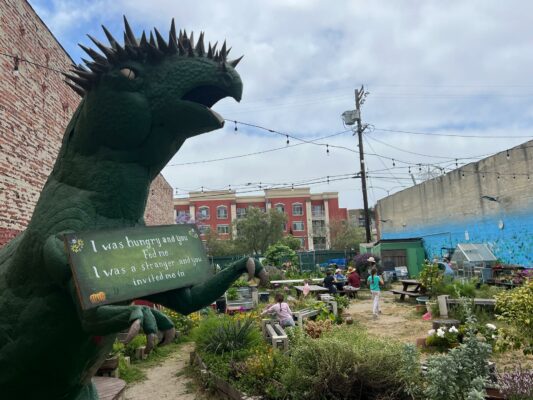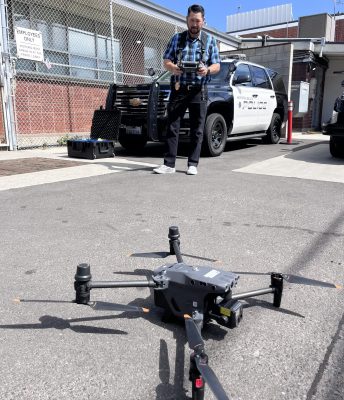
Hermosa Beach has changed a lot in 40 years. The railroad tracks are gone. Either/Or Bookstore is too. You can’t even drive all the way down Pier Avenue. But at least one thing hasn’t changed: When residents fall victim to crime, it tends to be easily preventable.
Lt. Tommy Thompson, a 39-year veteran of the Hermosa Beach Police Department, said such “crimes of opportunity” were the primary concern when he began. And as he prepares for his last day with the department on June 2, residents still haven’t quite gotten the message.
“Crime is still the same,” Thompson said with a laugh in a recent interview. “Unlocked vehicles, unlocked garages, people leaving their windows open — people don’t pay attention until they are a victim.”
It’s certainly not for lack of trying. Thompson’s long tenure in the department has been defined by outreach and engagement. The connections he developed in the process have made him a major asset to the department.
“I am so conflicted about him leaving. On one hand, he’s been here forever and deserves a rest,” said Chief Sharon Papa. “But he’s my in-house historian. He knows the backstory on everything that comes up.”
Thompson, an Air Force veteran, was a proponent of “community policing” long before it became a buzzword among criminologists. He was the first officer in the Hermosa’s DARE program, spending seven years in sixth grade classrooms. He helped get the Neighborhood Watch program off the ground. And, along with Lt. Andy Harrod of the Manhattan Beach Police Department, Thompson hosted “Beach Beat,” a local public access television show that brought news and crime-prevention tips to residents.
“Beach Beat” was among the first programs in the state in which a police department used TV to communicate with residents. When the program began, Thompson’s personality made him a natural choice for co-host.
“I guess I’m not shy. I don’t mind the crowds, speaking in public,” Thompson said. “It was easy for me to be with these citizens groups. That’s what made my career, the people I work with and became friends with.”
Among the cases that Thompson was involved with in his time as an officer was the killing of model Linda Sobek. Sobek disappeared after leaving her Hermosa home with a photographer for a modeling assignment. After authorities arrested the photographer, he spent Thanksgiving night on suicide watch in the Hermosa city jail. Thompson recalled that the photographer then lead police and L.A. County Sheriff’s deputies on a “wild goose chase” through Angeles National Forest before revealing the location of Sobek’s body.
As he progressed through the department, Thompson became deeply attached to the city he served. He got married on the Hermosa Pier on New Year’s Eve in 1999, he and his wife arriving with police escorts.
Thompson’s wife Ginger Eiseley jokes that her husband occasionally struggles with keeping his work at home.
“He’s a police officer 24/7,” Eiseley said. “It’s in his bones and it’s in his blood. You can’t go anywhere without him bringing up something Hermosa.”

Thompson continued to burnish his legacy of civic spirit by co-chairing the committee overseeing the city’s Sept. 11 memorial on Pier Avenue. The memorial features one button for each person who died in the attacks. It also includes wings from airline pilots. Thompson recalled receiving an outpouring of support from the local people in the aviation industry.
“When we had the ceremony, they were well represented,” Thompson recalled. “There must have been a hundred flight attendants and pilots that were there. It really hit home for them.”
As he has moved into a leadership role, his experience has been essential to the department. Chief Papa, who joined the department at the close of 2013, said that Thompson was her “right-hand person” when she began. As she got oriented in the community, she realized she was not the only officer taking cues from Thompson.
“He was the DARE officer for a lot of kids that are now adults living in the city. That kind of connection, that only happens with time,” Papa said. “He’s a great role model for some of our younger officers. They look at that and say, ‘Wow it’s going to take me a while to get there.’”
Thompson is proud of the legacy of communication and outreach he’ll leave behind.
“I’m glad to see that other people have picked up that same connection that I was involved in for decades now,” Thompson said. “If they can just keep doing that, we’ll be good.”










